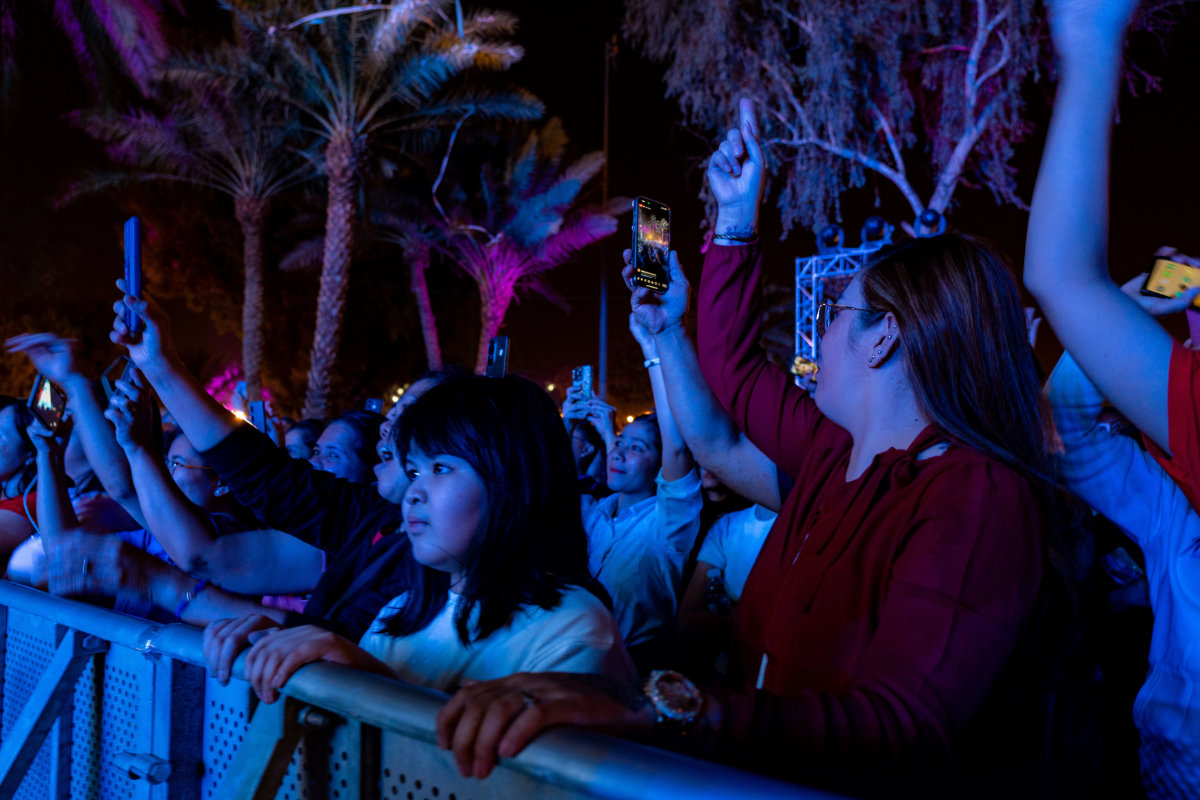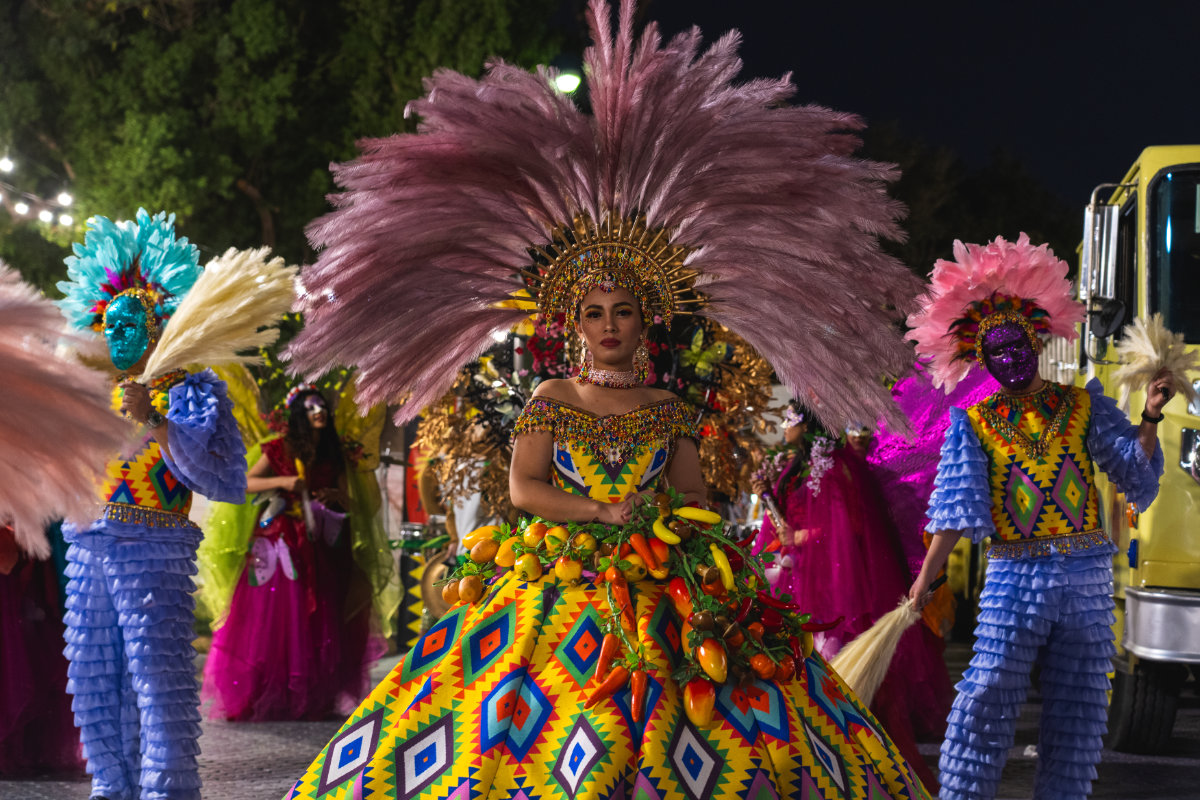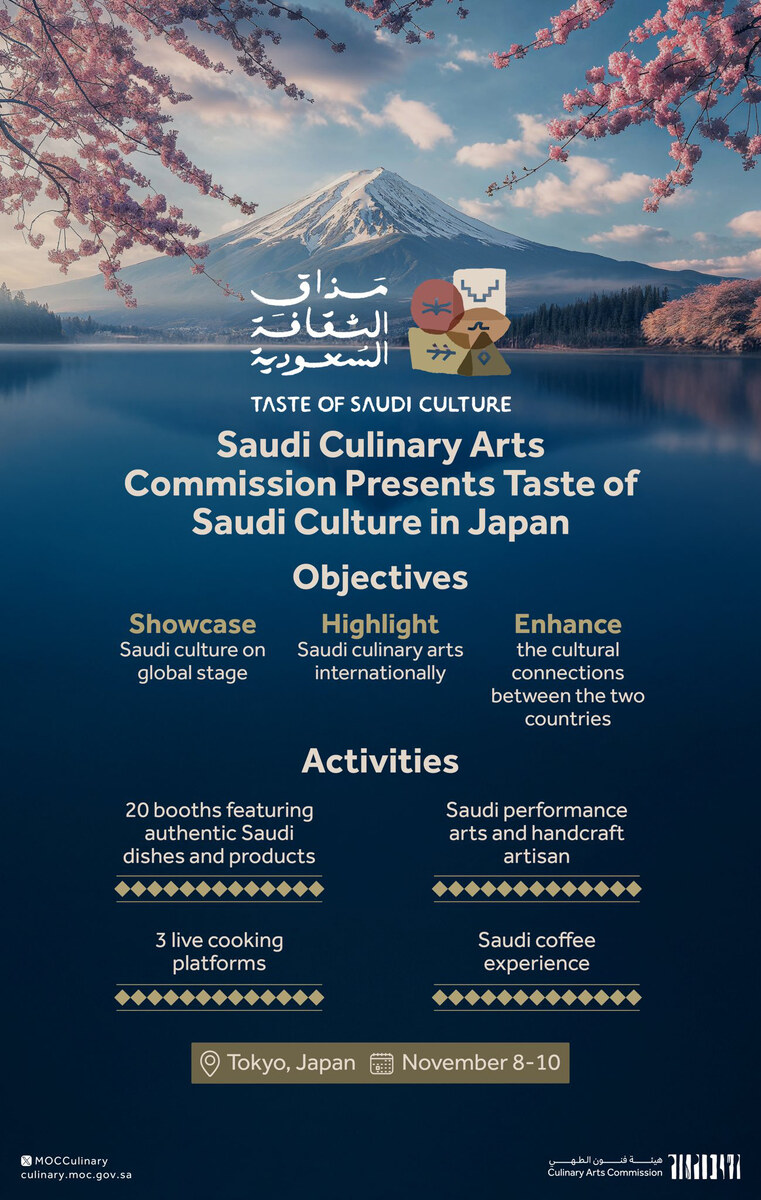RIYADH: Members of Saudi Arabia’s Filipino expatriate community are celebrating their culture with lively festivities in Suwaidi Park this week.
As part of the Ministry of Media’s Global Harmony initiative, a number of Filipino superstars are visiting the Kingdom’s capital to perform.
One such entertainer is DJ Jimmy Nocon, who energized the crowd with his upbeat set marked by trademark live drumming.
Speaking to Arab News after the show, he described how it felt to play for a crowd of mostly Filipino expatriates.

DJ Jimmy Nocon performs at the Global Harmony initiative event celebrating Filipino culture at Riyadh’s Suwaidi Park on Oct. 24, 2024. (AN photo/Abdulrahman bin Shalhoub)
He said: “It’s very special; it feels amazing. Of course, spinning, performing in front of my fellow Filipinos is very huge for me. It’s my pleasure.”
It was especially important, he said, to put on a show for his compatriots, known as Overseas Filipino Workers back home, who often make significant personal sacrifices in order to work in Saudi Arabia and send remittances to support their families.
He said: “I would like to thank, of course, Saudi Arabia’s government for having us and for having this event. So thank you so much.”
Remittances from OFWs make up a significant proportion of the Asian nation’s gross domestic product: 8.5 percent, according to the official Philippine News Agency.
There are 725,890 Filipinos living in Saudi Arabia, according to the 2022 national census, making them one of the largest expatriate populations in the country.
Many of them are employed in the medical field, with an estimated 130,000 Filipino nurses working in Saudi hospitals and clinics.

Members of the public celebrate Filipino music and culture at the Global Harmony initiative event at Riyadh’s Suwaidi Park on Oct. 24, 2024. (AN photo/Abdulrahman bin Shalhoub)
Cheysser Pragillata is one of those nurses, and she told Arab News that the Global Harmony event was a good chance to socialize and take a break from a demanding job.
She said: “It can help you to relieve your stress at work, this kind of event. It’s really helping us, for our social life, going out with our friends.”
Pragillata has lived in Saudi Arabia for eight years, and calls it her “second home.”
Describing the benefits of living in the Kingdom, she said: “It really gave me a chance to improve my career and (there are) a lot of great opportunities here for us.”
As well as the rousing performance from DJ Jimmy, a series of performers and dancers also took to the stage at the event, including The Power Duo, the winners of “Pilipinas Got Talent.”
While the show on the main stage got underway, a dynamic marching band with dancers clad in bright colors wended its way through the park’s walkways.

A dancer performs in the parade in Riyadh's Suwaidi Park as part of the Global Harmony initiative celebrating Filipino culture on Oct. 24, 2024. (AN photo/Abdulrahman bin Shalhoub)
Children from the International Philippines School also got the chance to put on a dance show for proud parents and members of the public.
Kurt Dabalos came to support his daughter for the dance show, but stayed for the atmosphere.
He told Arab News: “We came here for, firstly, to be honest, because my daughter is performing, but if my daughter (was not) performing, I think I would still come here just to appreciate the hospitality of Saudi Arabia in welcoming the Filipinos, having this kind of activity for us all.”
The Global Harmony initiative was launched on Oct. 17 and began with music and dance to celebrate the culture of Indian expatriates.
While this week gives the country’s Filipino community the spotlight, next week will highlight Indonesian culture (Oct. 26-29), followed by Pakistani (Oct. 30-Nov 2), Yemeni (Nov. 3-6), Sudanese (Nov. 7-16), Jordanian, Lebanese and Syrian (Nov. 17-19), Bangladeshi (Nov. 20-23), and Egyptian (Nov. 24-30).





























